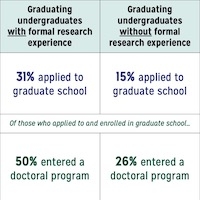Considerations when using Fitness Trackers in Research
![]()
Many people around the country are in week three of their resolutions to monitoring their health with their fitness trackers. These mobile health devices are becoming more common. The iphone tracks your steps, maybe without you even realizing it, as does this necklace and this ring. Researchers have been talking about mobile health devices for years. The Computing Community Consortium (CCC) held 2016 workshop on Discovery and Innovation in Smart and Pervasive Health and then at AAAS 2017 CCC had a session on “Health in Your Pocket: Diagnosing and Treating Disease with Smartphones” and a flash talk on “The Technology of the Future.” Recently, the National Institutes of Health All of Us initiative announced they would use wearable fitness tracker data to combine with the health-related data participants provide to better understand how lifestyles can impact health.
Researchers have repeatedly shown how getting credit with fitness tracking is important, otherwise people may abandon using them. Recently, CCC Council Member Katie Siek wrote an op-ed called “Why fitness trackers may not give you all the ‘credit’ you hoped for” in The Conversation that questioned the accuracy of these fitness trackers.
“I’ve found in my health informatics research that wearable devices may not give all the credit their users deserve…”
Fitness trackers are bad at tracking people who have limited arm movement, for example when pushing a stroller or carrying an infant.
“When people keep their wrists still, as in pushing a stroller, the wrist is not changing directions. Thus, the software cannot detect changes in movement from the accelerometer sensor on a wrist tracker which is looking for changes in up-down, forward-backward and side-to-side movements.”
Siek is concern about the quality of the lifestyle data that researchers obtain from these fitness trackers.
“If wearable fitness trackers are putting inaccurate step and sleep data into the algorithms that quantify our activities, then people will be making health-related decisions based on inaccurate data.”
In addition, for computing community researchers, Siek would strongly recommend researchers consider who is storing commodity fitness tracker wearable data. Large tech companies are providing the reliable and scalable infrastructure to share and process data – from Microsoft storing U.S. military information to Amazon storing medical records. The same is becoming increasingly true for our wearable fitness devices. In 2019, Google purchased Fitbit and Misfit wearable fitness tracker companies. The press releases note that privacy will be taken seriously and Fitbit’s move to Google is more to store data and integrate into Google Fit. If larger tech companies are simply storing the data, then our current understanding of who is seeing our data is correct. If, however, a company decides to change their Terms of Service agreements, that people have difficulty understanding, to use the data, then we need work with industry to rethink how we better convey their intentions to users.
See the full article in The Conversation here to learn more.









